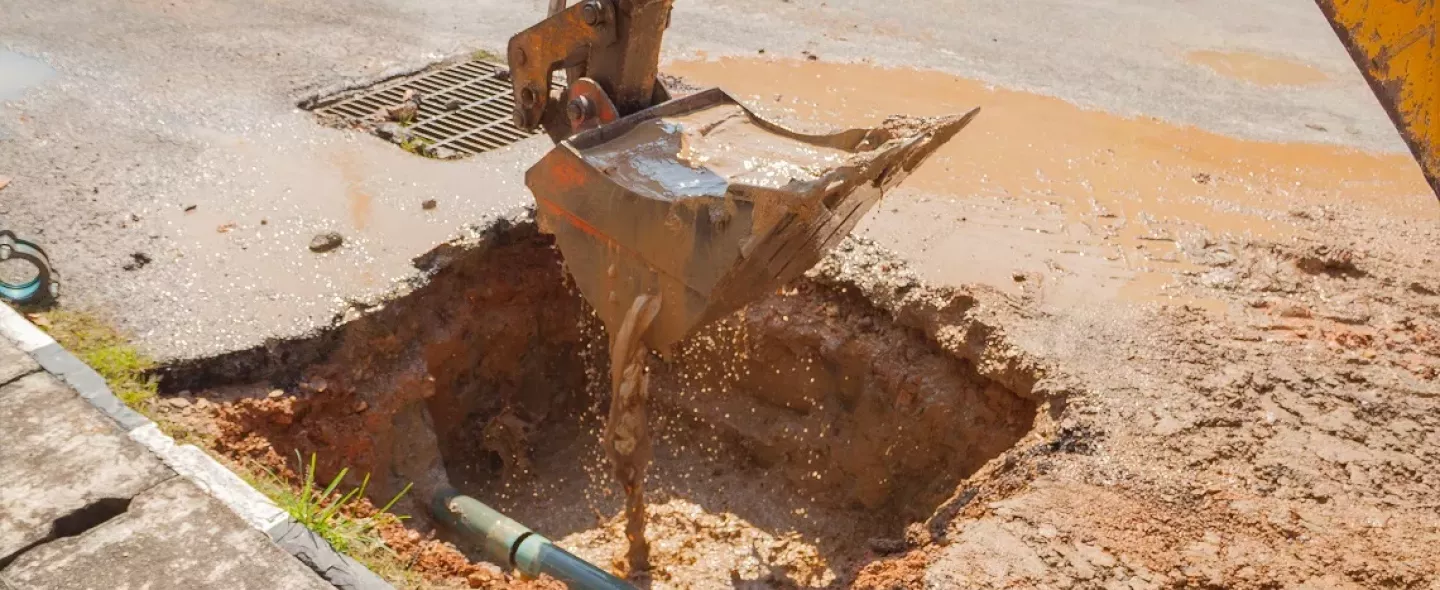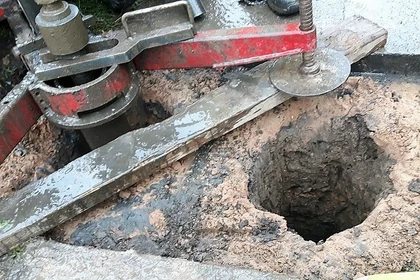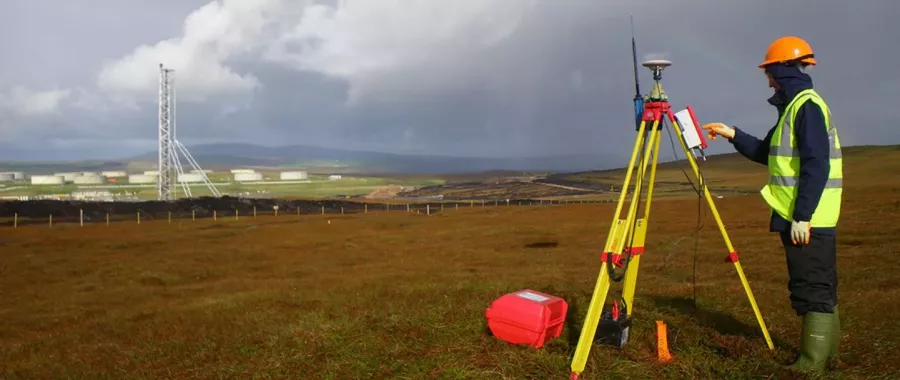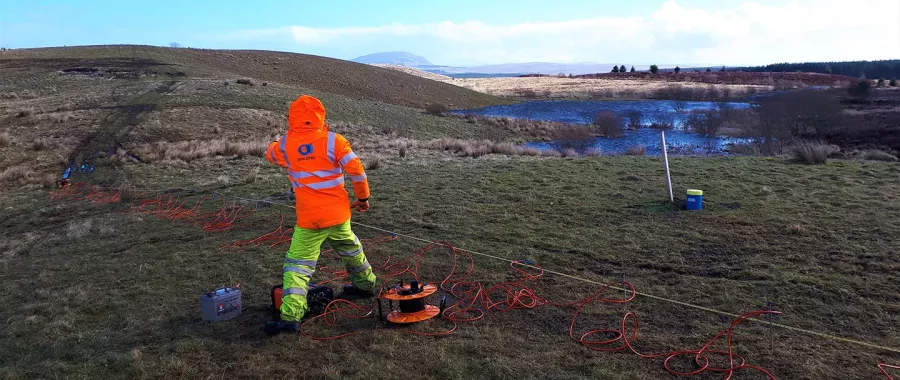HSG47 guidance recommends that an underground utility survey is completed before working on or near to buried services.
Using the latest underground utility detection technology including Stream C, Radio Frequency Location (RFL) and Ground Penetration Radar /Ground Probing Radar (GPR), SOCOTEC is able to locate and provide a clear understanding of all buried services, utilities, metallic pipes, plastic pipes, drainage runs, electric cables, communication and fibre optic cables. In fact, utility tracing can be completed for just about any underground utilities.
Typically, our underground utility detection surveys are completed to The Survey Association Level 4 or BSI PAS128 specifications. Other service specification levels are available on request to meet demands. Survey results can be provided in a range of formats to meet your project requirements.
Benefits of using SOCOTEC's underground utility detection surveys include:
- Reduced exposure to buried hazards
- Non-intrusive survey - minimises disruption
- Desk study / statutory service provider searches
- NVQ trained and experienced staff
- Latest survey equipment and software
- Surveys to PAS 128 or TSA standards available
- Accurate record of underground utility depths and locations
SOCOTEC's methods include:

Underground Utility Surveys
Stream C
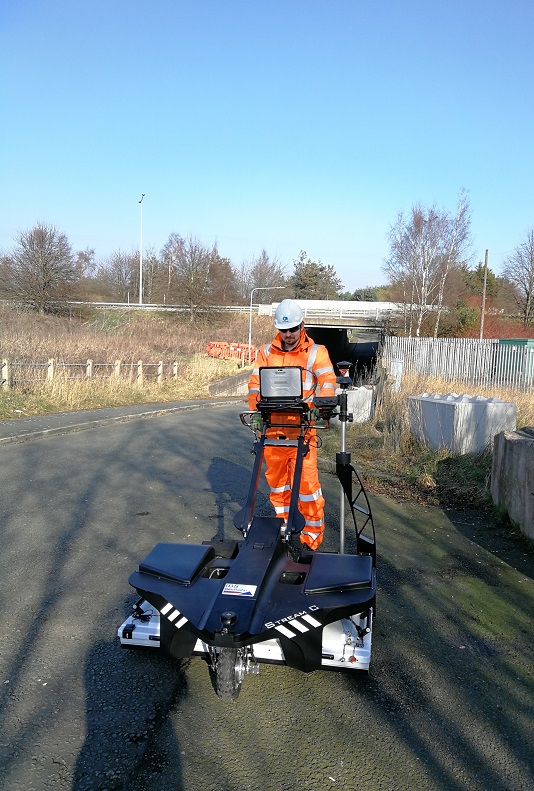
Real-time 3D mapping tool with 34 antennas in two polarisations to produce a real-time 3D reconstruction of the underground network in a single scan.
Stream C facilitates large surveys through its towing-kit, or smaller surveys due to its compact size. With automatic pipe detection, surveys only need to be performed in one direction which improves productivity and efficiency in underground utility detection.
Detects
All buried services:
- Utilities
- Metallic pipes
- Plastic pipes
- Drainage runs
- Electric cables, communication and fibre optic cables.
Real-time 3D mapping tool with 34 antennas in two polarisations to produce a real-time 3D reconstruction of the underground network in a single scan.
Stream C facilitates large surveys through its towing-kit, or smaller surveys due to its compact size. With automatic pipe detection, surveys only need to be performed in one direction which improves productivity and efficiency in underground utility detection.
Detects
All buried services:
- Utilities
- Metallic pipes
- Plastic pipes
- Drainage runs
- Electric cables, communication and fibre optic cables.

Underground Utility Surveys
Radio Frequency Location (RFL)

Conventional technology behind utility detection surveys, and the tools used by SOCOTEC are the most advanced form of what most people know as “CAT & Genny” (Cable Avoidance Tool & Signal Generator).
Detects
- Electricity cables
- Communication cables
- Telecommunication cables (metallic)
- Metallic water, gas, fuel and vent pipes
Conventional technology behind utility detection surveys, and the tools used by SOCOTEC are the most advanced form of what most people know as “CAT & Genny” (Cable Avoidance Tool & Signal Generator).
Detects
- Electricity cables
- Communication cables
- Telecommunication cables (metallic)
- Metallic water, gas, fuel and vent pipes

Underground Utility Surveys
Ground Penetration Radar / Ground Probing Radar (GPR survey)
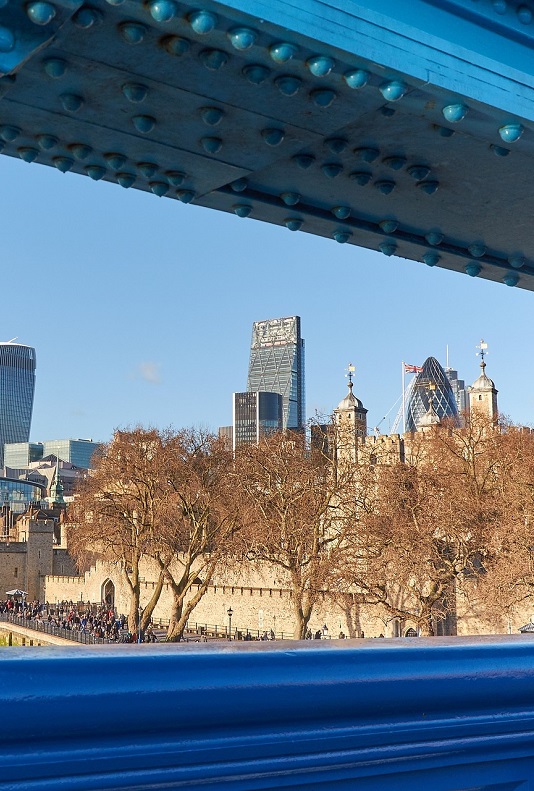
Used to locate buried objects which are foreign to the surrounding environment and can identify changes or interfaces between different media below ground. Although no indication is given as to the detected object’s material, and only general indications of size can be determined, this method is invaluable in obtaining information relating to the (previously invisible) underground environment.
Detects
- Fibre optic cables
- Plastic water, gas, cable, fuel and vent pipes
- Concrete pipes
- Clay pipes
Used to locate buried objects which are foreign to the surrounding environment and can identify changes or interfaces between different media below ground. Although no indication is given as to the detected object’s material, and only general indications of size can be determined, this method is invaluable in obtaining information relating to the (previously invisible) underground environment.
Detects
- Fibre optic cables
- Plastic water, gas, cable, fuel and vent pipes
- Concrete pipes
- Clay pipes

